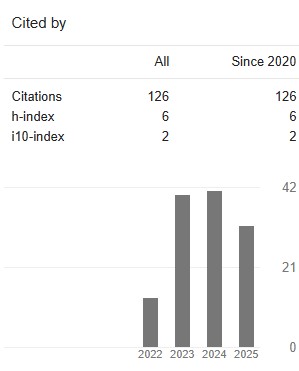Prinsip Tauhid dalam Implementasi Ekonomi Islam
The Tawhid Principle in Islamic Economics Implementation
DOI:
https://doi.org/10.36701/al-khiyar.v1i1.446Keywords:
tawhid, principle, Islamic economicsAbstract
This research aims to find out the principles of tawhid and its implementation in the Islamic economic system. This research uses qualitative approaches with library research methods and descriptive analysis. The results show that the nature of tawhid in Islam itself is a unanimous surrender to the will of Allah, both regarding worship and muamalah. From the point of view of tawhid, human was created as His caliph or His representative on earth. Natural resources created must be utilized for the fulfillment of the happiness of all mankind. The implication of this view is the existence of a view of universal brotherhood, which then gives rise to social equality and makes natural resources as “amānah” of God who created the universe. This view will not be substantially implemented if it is not accompanied by socio-economic justice. The enforcement of justice and the elimination of all forms of injustice have been emphasized in the Qur'an as the primary mission of Allah's messenger. Based on this foundation, there should be a balance of all economic factors in economic practice and implementation. People should strive to form a society that pursues key values and seeks the establishment of social justice.
Downloads
References
Abduh, Muhammad. Risalah al-Tauhid. Kairo: t.th.
Al-Faruqi, Ismail Raji. Tawhid; It’s Implication for Though and Live, Terj. Rahmani Astuti, Bandung: Pustaka, 1988.
Al-Ied, Umar Bin Su’ud. Tauhid; Ahammiyatuhu wa Tsamaratuhu. Riyadh: al-Maktab al-Ta’awuni li al-Dakwah wa al-Irsyad, 1419 H.
Al-Syahrastani, Abu al-Fath Muhammad Abd al-Karim bin Abi Bakr Ahmad. Al-Milal wa An-Nihal. Bairut-Libanon: Daar al-Fikr, 2005.
Al-Tarabulisi, Sayyid Husein Afandi al-Jisr. Hushun al-Hamidiyah. Surabaya: Maktabah Tsaqafiyah, t.th.
Anshari, Endang Saifuddin. Wawasan Islam: Pokok-Pokok Pikiran tentang Paradigma dan Sistem Islam. Jakarta: Gema Insani Press, 2004.
Choudhury, Masudul Alam. “The Dynamics of the Shari’ah and the World-System.” Journal of King Abdulaziz University: Islamic Economics 23, no. 2 (2010): 197-225.
Dzikrulloh. “Transformasi Nilai Tauhid dan Filosofis Ibadah pada pengembangan Ekonomi Islam.” Izdihar: Jurnal Ekonomi Syariah 1, no. 1 (2021): 35-68.
Engineer, Asghar Ali. Islam dan Teologi Pembebasan. Yogyakarta: Pustaka Pelajar, 1999.
Esha, Muhammad In’am . Teologi Islam; Isu-Isu Kontemporer. Malang: UIN Malang Press, 2008.
Fazlurrahman. Islam, Cet. II, Penj. Ahsin Mohammad. Bandung: Pustaka, 1994.
Kartono, Kartini. Metodologi Sosial. Bandung: Mandar Maju, 1991.
Khaldun, Ibnu. Muqaddimah Ibnu Khaldun. Beirut: Daar al-Kutub al-Ilmiah, 1971.
Maghfur, Ifdlolul. “Membangun ekonomi dengan prinsip tauhid.” MALIA: Jurnal Ekonomi Islam 7, no. 2 (2016): 213-240.
Maryam, Ibnu. Globalisasi dan Tatanan Ekonomi Islam. http://ibnumariam.wordpress.com/2010/06/22/globalisasi-dan-tatanan-ekonomi-islam/ (Diakses pada tanggal 9 November 2021).
Qardhawi, Yusuf. Daurul Qiyam wal Akhlak fil Iqtishadil Islami, Edisi Terjemah: Norma dan Etika Ekonomi Islam, oleh: Zainal Arifin dan Dahlia Husin. Jakarta: Gema Insani, 2006.
Rahmat, Azwar Iskandar, dan Khaerul Aqbar. “The Thought of Abu Ya’la Concerning Financial Supervision (Study on the Book of Al-Ahkām Al-Sulṭāniyyah).” Tasharruf: Journal Economics and Business of Islam 6, no. 1 (2021): 68-85.
Rahmat, Azwar Iskandar, dan Khaerul Aqbar. “Keuangan Negara Menurut Al-Māwardī Dalam Al-Aḥkām Al-Sulṭānīyah Wa Al-Walāyāt Al-Dīnīyah Dan Peluang Implementasinya Di Indonesia.” ISLAMICA: Jurnal Studi Keislaman 15, no. 1 (2020): 133-158.
Rais, M. Amien. Cakrawala Islam: Antara Cita dan Fakta, Bandung: Mizan, 1996.
Sumbono, Bambang. Metode Penelitian Hukum. Jakarta: PT. Raja Grafindo Persada, 2003.
Takhim, Muhamad, dan Hery Purwanto. “Filsafat Ilmu Ekonomi Islam.” Syariati: Jurnal Studi Al-Qur'an dan Hukum 4, no. 01 (2018): 105-114.













